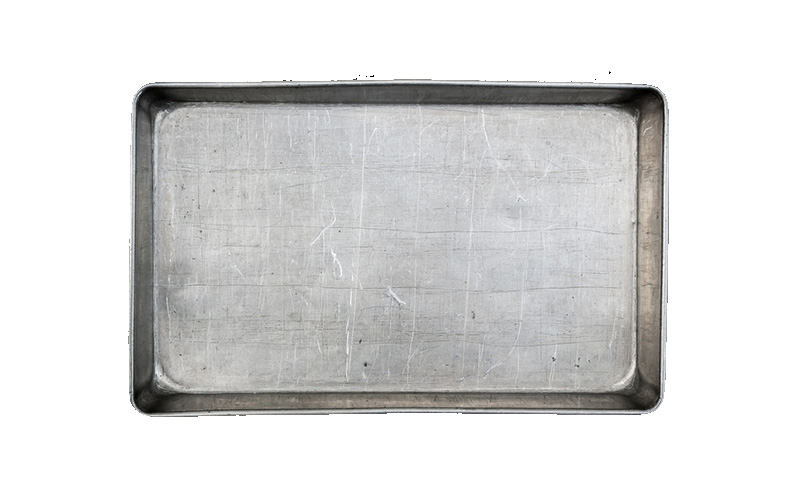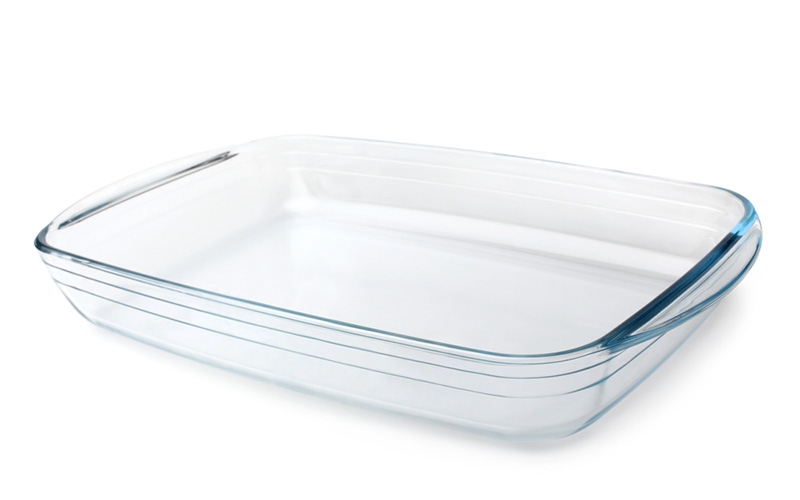Metal, Glass, or Silicone: Which Baking Pan is Best for You?
Sep 25th 2023
Deciding between baking pan materials is more than a trivial choice; it influences the baking journey. The right baking pan—whether metal, glass, or silicone—can make all the difference in the results of your baked creations. This article delves into a comprehensive comparison of metal, glass, and silicone bakeware to aid everyone in choosing the ideal pan for baking cakes, breads, pies, and more, ensuring the tastiest and most appealing results.
The Evolution of Baking Pans
From cast iron and clay to aluminum and steel, caking pans have undergone a significant evolution, reflecting the quest for superior performance, durability, and practicality in bakeware products. Each material, whether used for cakes, muffins, or other baked goods, has its unique properties affecting the baking process and the final product. Exploring the differences and experiencing the variety can elevate anyone's baking experience.
Metal Baking Pans

Metal pans, made from aluminum or stainless steel, are a staple in professional and home kitchens, primarily due to their excellent heat conduction. They brown the edges of cakes and bread crisply and are favored for recipes requiring precision in baking times and temperatures.
Glass Baking Pans

Glass bakeware, renowned for its heat retention and ability to cook foods evenly, offers the advantage of monitoring the baking progress due to its transparent nature. Especially for casseroles and other dish recipes, the visibility and heat retention of glass bakeware is invaluable, although the risk of breakage is something to consider.
Silicone Baking Pans
Silicone pans, known for their flexibility and nonstick surfaces, make unmolding baked goods like cupcakes and muffins a breeze. They resist high and low temperatures, enabling their use in various baking and freezing applications. However, they sometimes lack the structural rigidity needed for certain recipes, affecting the shape and texture of baked goods.
Comparative Analysis
When comparing metal, glass, and silicone pans, one must consider baking times, texture, browning, price, health, and environmental aspects. Metal pans tend to bake faster due to superior heat conduction, while glass and silicone pans might need longer baking due to their heat retention properties.
Suitability For Baked Goods
Different pans excel with other recipes. Metal pans are generally preferred for bread due to their browning abilities, while glass is often chosen for casseroles due to heat retention and visibility.
Price And Value
While metal and glass pans are generally more affordable, quality silicone pans might come with a higher price tag but offer the convenience of easy demolding and nonstick properties.
Health And Environment
Considerations regarding the environmental impact and health safety of materials are crucial. While metal pans are durable and long-lasting, silicone pans are praised for being eco-friendly and recyclable. Glass, being non-reactive, ensures no chemicals leach into your food, offering a healthy alternative.
Expert Insights And Recommendations
Professional bakers and chefs emphasize the importance of understanding the nuances of each material. Their recommendations often revolve around using metal for precision and crispiness, glass for even baking and purity of taste, and silicone for its versatility and ease of use. Following expert advice while experimenting will help develop personal preferences and enhance baking skills.
Tips, Tricks, And Maintenance
Regardless of material, proper care and maintenance of baking pans are crucial. Avoiding acidic foods and using silicone utensils for metal pans can prevent scratches and reactions. Glass pans require careful handling to avoid breakage. They should not be exposed to extreme temperature changes. Silicone pans benefit from gentle cleaning to avoid punctures and should be stored properly to maintain their shape.
Engage And Explore
The baking community, including forums, Instagram, and other social media platforms, is a treasure trove of experiences, tips, and recommendations. Whether you are a novice baker experimenting with recipes or a seasoned professional exploring new techniques, engaging with fellow bakers and sharing experiences can enrich your baking journey and broaden your knowledge.
Frequently Asked Questions
How Does The Choice Of Baking Pan Material Affect The Taste And Texture Of Baked Goods?
The choice of bakeware material can dramatically impact the taste and texture of your baked goods. For instance, metal pans, optimal for baking a variety of foods, can lead to crisper and browner exteriors, making them an ideal choice for breads and pies. Glass bakeware, on the other hand, provides consistent and even baking, beneficial for recipes like casseroles. Silicone pans easily remove delicate baked items like cakes and muffins, preserving their shape and intricate details.
Can The Same Baking Times And Temperatures Be Used Regardless Of The Baking Pan Material?
Different baking pan materials, like metal, glass, or silicone, conduct and retain heat differently, affecting the overall baking process and results. Metal pans, being excellent conductors of heat, might necessitate shorter baking times, while glass and silicone bakeware, recognized for their heat retention properties, might need adjustments to baking times and temperatures to achieve optimal results, ensuring the delicious outcome of your recipes.
Is It Safe To Use Metal Pans For Acidic Foods Like Tomato-Based Recipes?
It is generally advised against using untreated metal pans, like aluminum or steel, for acidic foods as they can react with the metal, modifying the taste and potentially releasing metal into the food. It's better to opt for non-reactive metal pans or glass bakeware for acidic recipes to maintain your dishes' taste purity.
Final Thoughts
Selecting the appropriate baking pan is crucial. Each material has its unique set of advantages and disadvantages, and the choice ultimately boils down to personal preference and baking requirements. Whether it’s experimenting with different types of cakes, trying new recipes, or simply enjoying the baking process, choosing the right bakeware can significantly impact the experience and the end result. So, go ahead, bake, experiment, and don’t be afraid to try something new in your kitchen!


